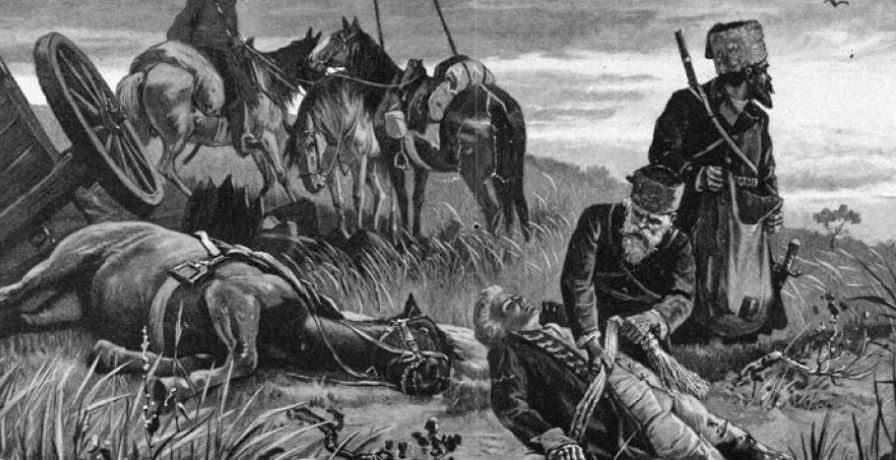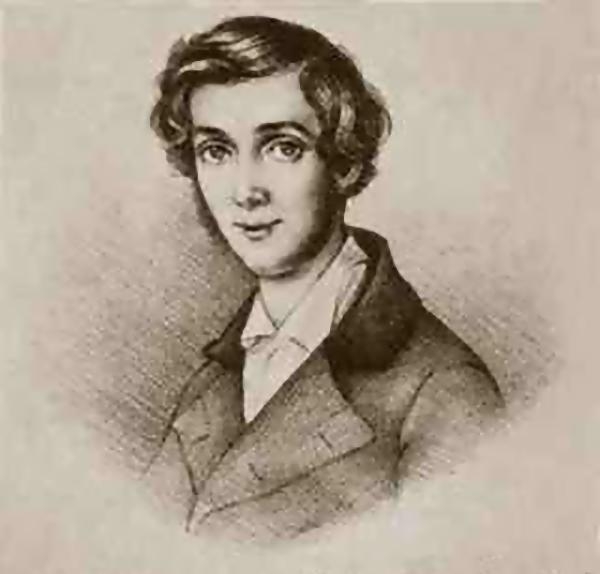|
Steinhöfel
Steinhöfel is a municipality in the Oder-Spree district, in Brandenburg, Germany. Since the beginning of 2019 it belongs to the collective municipality " Amt Odervorland" In 1774, the Prussian Minister of War and Treasury Joachim von Blumenthal purchased the estate of Steinhöfel, including a manor that was later expanded into a castle. When von Blumenthal died, the estate was inherited by his daughter Charlotte von Massow, whose husband the Court Marshal Valentin von Massow commissioned a rebuilding of the manor by the architect David Gilly. The property was inherited in turn by the couple's son Valentin von Massow who had served with Wellington in Spain and as one of his adjutants at Waterloo. During the Seven Years' War, the castle's surroundings saw a brief visit by Frederick the Great resting his troops prior to the Battle of Kunersdorf. Later recreational visitors included Frederick William III of Prussia and Theodor Fontane who expressed considerable enthusiasm about the ... [...More Info...] [...Related Items...] OR: [Wikipedia] [Google] [Baidu] |
David Gilly
David Gilly (7 January 1748 – 5 May 1808) was a German architect and architecture-tutor in Prussia, known as the father of the architect Friedrich Gilly. Life Born in Schwedt, Gilly was the son of a French-born Huguenot immigrant named Jacques Gilly and his wife Marie Villemain. His brother was the physician Charles Gilly. Already at the age of fifteen, Gilly was working in the gardens on the Netze. Becoming a specialist in building water-features, he was appointed master builder in 1770 (at 22 years of age), and was active between the years 1772 and 1782 in Stargard, Farther Pomerania. Gilly was the first examinee of the newly established ''Ober-Examinationskommission''. Around 1777, Gilly married Friederike, a daughter of the regimental stable-master Friedrich Ziegenspeck. With her he had two children, Friedrich and Minna (who later married the politician Friedrich Gentz). In Stargard, Gilly was in 1779 promoted to building director of Pomerania, before being transferr ... [...More Info...] [...Related Items...] OR: [Wikipedia] [Google] [Baidu] |
Amt Odervorland
Amt Odervorland is an ''Amt'' ("collective municipality") in the district of Oder-Spree, in Brandenburg, Germany. Its seat is in Briesen. The ''Amt'' Odervorland consists of the following municipalities: #Berkenbrück # Briesen #Jacobsdorf #Steinhöfel Demography File:Bevölkerungsentwicklung Amt Odervorland.pdf, Development of Population since 1875 within the Current Boundaries (Blue Line: Population; Dotted Line: Comparison to Population Development of Brandenburg state; Grey Background: Time of Nazi rule; Red Background: Time of Communist rule) File:Bevölkerungsprognosen Amt Odervorland.pdf, Recent Population Development and Projections (Population Development before Census 2011 (blue line); Recent Population Development according to the Census in Germany in 2011 (blue bordered line); Official projections for 2005-2030 (yellow line); for 2017-2030 (scarlet line); for 2020-2030 (green line) References Odervorland Amt Odervorland is an ''Amt'' ("collective municipa ... [...More Info...] [...Related Items...] OR: [Wikipedia] [Google] [Baidu] |
Joachim Von Blumenthal
Joachim Christian, Count von Blumenthal (6 December 1720 in Quakenburg – 17 March 1800 in Berlin) succeeded his uncle Ludwig von Blumenthal as President of the Prussian General War and Finance Directory (effectively Minister War and Finance) of Prussia and remained so until the time of the Napoleonic Wars. His parents were Heinrich Albrecht von Blumenthal (1693–1767), Lord of Quackenburg, and Katharina von Lettow (1702–1743). His brothers Georg von Blumenthal und Werner (1725–1804) were both senior officers in the Prussian Army. Blumenthal was lord of Steinhöfel (Brandenburg), Groß Möllen (Pomerania), Loiste and various other estates. He entered the Prussian Civil Service. In 1743 he was a "Councillor" of the War and Domains Directory, where he worked in Gumbinnen before being transferred to Königsberg in 1746. In 1755 he became President of the War and Domains Chamber in Magdeburg, where he caught the eye of Friedrich the Great who in 1763 appointed him Privy Stat ... [...More Info...] [...Related Items...] OR: [Wikipedia] [Google] [Baidu] |
Oder-Spree
Oder-Spree is a ''Kreis'' (district) in the eastern part of Brandenburg, Germany. Neighboring are (from north clockwise) the district Märkisch-Oderland, the district-free city Frankfurt (Oder), Poland, the districts Spree-Neiße and Dahme-Spreewald, and the ''Bundesland'' Berlin. Geography The district is named after the two major rivers in the district - the Spree river forms a large bend within the district; the Oder river constitutes the eastern border. History The district was created in 1993 by merging the districts Eisenhüttenstadt, Beeskow and Fürstenwalde, and the district-free city Eisenhüttenstadt. Demography File:Bevölkerungsentwicklung Landkreis Oder-Spree.pdf, Development of Population since 1875 within the Current Boundaries (Blue Line: Population; Dotted Line: Comparison to Population Development of Brandenburg state) File:Bevölkerungsprognosen Landkreis Oder-Spree.pdf, Recent Population Development and Projections (Population Development before Census 201 ... [...More Info...] [...Related Items...] OR: [Wikipedia] [Google] [Baidu] |
Municipalities Of Germany
MunicipalitiesCountry Compendium. A companion to the English Style Guide European Commission, May 2021, pages 58–59. (german: Gemeinden, ) are the lowest level of official territorial division in . This can be the second, third, fourth or fifth level of territorial division, depending on the status of the municipality and the '''' (federal state) it ... [...More Info...] [...Related Items...] OR: [Wikipedia] [Google] [Baidu] |
Battle Of Kunersdorf
The Battle of Kunersdorf occurred on 12 August 1759 near Kunersdorf (now Kunowice, Poland) immediately east of Frankfurt (Oder), Frankfurt an der Oder (the second-largest city in Kingdom of Prussia, Prussia). Part of the Third Silesian War and the wider Seven Years' War, the battle involved over 100,000 men. An Allied army commanded by Pyotr Saltykov and Ernst Gideon von Laudon that included 41,000 Russian Empire, Russians and 18,500 Habsburg monarchy, Austrians defeated Frederick II of Prussia, Frederick the Great's army of 50,900 Prussians. The terrain complicated battle tactics for both sides, but the Russians and the Austrians, having arrived in the area first, were able to overcome many of its difficulties by strengthening a causeway between two small ponds. They had also devised a solution to Frederick's deadly ''modus operandi'', the oblique order. Although Frederick's troops initially gained the upper hand in the battle, the sheer number of Allied troops gave the Russians ... [...More Info...] [...Related Items...] OR: [Wikipedia] [Google] [Baidu] |
East Germany
East Germany, officially the German Democratic Republic (GDR; german: Deutsche Demokratische Republik, , DDR, ), was a country that existed from its creation on 7 October 1949 until its dissolution on 3 October 1990. In these years the state was a part of the Eastern Bloc in the Cold War. Commonly described as a communist state, it described itself as a socialist "workers' and peasants' state".Patrick Major, Jonathan Osmond, ''The Workers' and Peasants' State: Communism and Society in East Germany Under Ulbricht 1945–71'', Manchester University Press, 2002, Its territory was administered and occupied by Soviet forces following the end of World War II—the Soviet occupation zone of the Potsdam Agreement, bounded on the east by the Oder–Neisse line. The Soviet zone surrounded West Berlin but did not include it and West Berlin remained outside the jurisdiction of the GDR. Most scholars and academics describe the GDR as a totalitarian dictatorship. The GDR was establish ... [...More Info...] [...Related Items...] OR: [Wikipedia] [Google] [Baidu] |
Nazi Germany
Nazi Germany (lit. "National Socialist State"), ' (lit. "Nazi State") for short; also ' (lit. "National Socialist Germany") (officially known as the German Reich from 1933 until 1943, and the Greater German Reich from 1943 to 1945) was the German state between 1933 and 1945, when Adolf Hitler and the Nazi Party controlled the country, transforming it into a dictatorship. Under Hitler's rule, Germany quickly became a totalitarian state where nearly all aspects of life were controlled by the government. The Third Reich, meaning "Third Realm" or "Third Empire", alluded to the Nazi claim that Nazi Germany was the successor to the earlier Holy Roman Empire (800–1806) and German Empire (1871–1918). The Third Reich, which Hitler and the Nazis referred to as the Thousand-Year Reich, ended in May 1945 after just 12 years when the Allies defeated Germany, ending World War II in Europe. On 30 January 1933, Hitler was appointed chancellor of Germany, the head of gove ... [...More Info...] [...Related Items...] OR: [Wikipedia] [Google] [Baidu] |
Cultural Heritage
Cultural heritage is the heritage of tangible and intangible heritage assets of a group or society that is inherited from past generations. Not all heritages of past generations are "heritage"; rather, heritage is a product of selection by society. Cultural heritage includes cultural property, tangible culture (such as buildings, monuments, landscapes, books, works of art, and artifacts), intangible heritage, intangible culture (such as folklore, traditions, language, and knowledge), and natural heritage (including culturally significant landscapes, and biodiversity).Ann Marie Sullivan, Cultural Heritage & New Media: A Future for the Past, 15 J. MARSHALL REV. INTELL. PROP. L. 604 (2016) https://repository.jmls.edu/cgi/viewcontent.cgi?article=1392&context=ripl The term is often used in connection with issues relating to the protection of Indigenous intellectual property. The deliberate act of keeping cultural heritage from the present for the future is known as Conservation (cul ... [...More Info...] [...Related Items...] OR: [Wikipedia] [Google] [Baidu] |
Theodor Fontane
Theodor Fontane (; 30 December 1819 – 20 September 1898) was a German novelist and poet, regarded by many as the most important 19th-century German-language realist author. He published the first of his novels, for which he is best known today, only at age 58 after a career as a journalist. Fontane's novels are known for their complex, often sceptical view of society in the German empire; he shows different social and political parts of society meeting and sometimes clashing. Other trademarks of Fontane's work are their strongly drawn female characters (such as ''Effi Briest'' and ''Frau Jenny Treibel''), tender irony and vivid conversations between characters. Life Youth Fontane was born in Neuruppin, a town 30 miles northwest of Berlin, into a Huguenot family. At the age of sixteen he was apprenticed to an apothecary, his father's profession. He became an apothecary himself and in 1839, at the age of 20, wrote his first work (''Heinrichs IV. erste Liebe'', now lost). His ... [...More Info...] [...Related Items...] OR: [Wikipedia] [Google] [Baidu] |
Frederick William III Of Prussia
Frederick William III (german: Friedrich Wilhelm III.; 3 August 1770 – 7 June 1840) was King of Prussia from 16 November 1797 until his death in 1840. He was concurrently Elector of Brandenburg in the Holy Roman Empire until 6 August 1806, when the Empire was dissolved. Frederick William III ruled Prussia during the difficult times of the Napoleonic Wars. The king reluctantly joined the coalition against Napoleon in the . Following Napoleon's defeat, he took part in the Congress of Vienna, which assembled to settle the political questions arising from the new, post-Napoleonic order in Europe. His primary interests were internal – the reform of Prussia's Protestant churches. He was determined to unify the Protestant churches to homogenize their liturgy, organization, and architecture. The long-term goal was to have fully centralized royal control of all the Protestant churches in the Prussian Union of Churches. The king was said to be extremely shy and indecisive. His wife ... [...More Info...] [...Related Items...] OR: [Wikipedia] [Google] [Baidu] |






_crop.jpg)